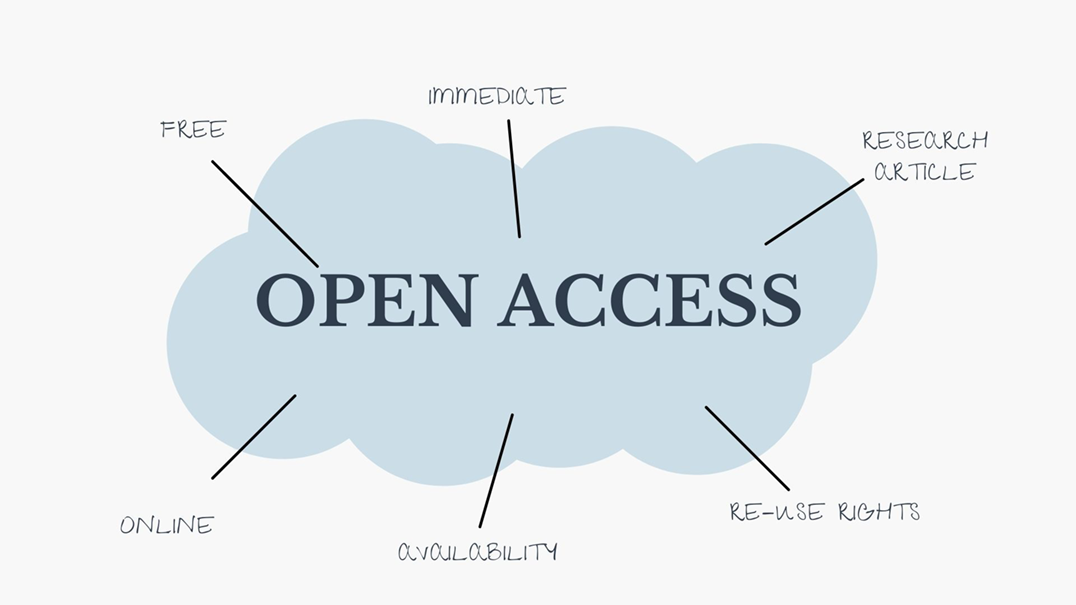News & Press
Young Researchers Meet for Third livMatS Boot Camp
The event centered on the handling of research data and science communication

Open access publishing and its benefits were topics discussed at the livMatS Boot Camp. Source: Jorge Cham/Piled Higher and Deeper (PHD Comics), CC BY
On March 03, 2022, livMatS held its third young researcher’s boot camp in a digital format. PhD students of the cluster had a day of talks and discussions centered on the topics of data management and science communication. On the second day of the event, they gained their first practical experience in communicating their own research.
The boot camp kicked off with a presentation on open access publishing: Laura Mahoney, the livMatS Writer’s Studio trainer, talked about the paths of open access publishing and the social significance associated with this form of publishing: "It addresses the need to democratize knowledge and science", Mahoney explained. "Especially when best practices are considered in the licensing of the data." In this context, Mahoney showed requirements from different funding bodies, and tools scientists can use to navigate the process. In addition, Jan Werner, an open access officer at the University library, gave more detail on support options offered by the University of Freiburg in this area.
In the afternoon, the livMatS data steward, Johannes Hörmann, and Principal Investigator Prof. Dr. Lars Pastewka guided students through a session on research data management. Students were given an introduction on the data life cycle, file naming conventions, and provenance tracking. The session focused on the FAIR principles of research data management: "The goal of the talk was to show participants how to make their data findable, accessible, interoperable, reusable – just as the FAIR principles state," Hörmann explains.
The day culminated in a slot on science communication: Dr. Thomas Susanka, editor-in-chief of the magazine Science Notes, and livMatS Principal Investigator Prof. Dr. Ralf Reski offered insights into the field from the perspectives of the journalist and the scientist, respectively. Topics discussed included how journalists approach scientists, how journalists write a story and the use of Social Media.
The young researchers had the opportunity to attend science communication workshops on social media and visual science communication the following day. In smaller groups, they used their own research topics to apply principles of rhetoric and clear design, highlight the relevance of their research, and define core messages to a target audience. “The social media workshop introduced me to important tools in this regard and motivated me for getting started with Twitter", says livMatS doctoral researcher Martin Möller. After this boot camp, the young scientists will thus be equipped to manage, publish and communicate their research results within and outside their field.
Young researcher's teaching and training at livMatS
